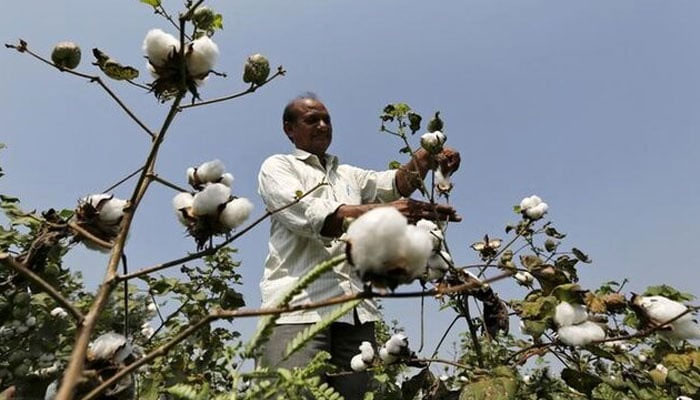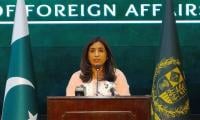
HYDERABAD: The Sindh Abadgar Board (SAB) held a meeting in Hyderabad, attended by growers from various districts, to discuss the impact of extreme weather conditions on Kharif crops. The discussion revealed that the severe heatwave and heavy rains have drastically reduced cotton production by 50 per cent compared to last year.
This production drop, combined with low prices for seed cotton, has left many growers unable to invest properly in post-rain crop management due to financial constraints. While a few growers who could afford to provide nutrition and bio-stimulants to their crops managed to recover some production, most have struggled.
The harvesting of paddy has also begun. Except for early-sown crops affected by the heatwave, overall paddy yields have been reported as robust. However, growers continue to suffer from widespread losses in Kharif vegetables, particularly chilies and onions, further exacerbating their financial difficulties.
Another key issue raised was the declining prices of seed cotton and paddy. In 2023, seed cotton was priced at Rs8,500 per 40 kg, while paddy was priced at Rs3,500 per 40 kg around this time. However, despite a rise in input costs, the prices of both commodities have dropped this year, with seed cotton averaging around Rs6,500 and paddy around Rs2,500 per 40 kg.
Growers expressed deep concern over the drop in commodity prices, which have now fallen below the cost of production. This concern is reflected in reduced fertilizer uptake, which is down by 20 per cent from last year -- an alarming sign for future agricultural output. The robust agricultural GDP growth and record exports of last year may not be repeated due to these challenges.
Adding to their woes, growers criticized the government’s lack of support for the agricultural sector. Climate change is affecting production, while what they see as the government’s selective deregulation is benefiting hoarders and middlemen at the expense of farmers.
The handling of the wheat market was cited as an example, where the government left wheat to the open market while also importing wheat during harvest season. This caused wheat prices to crash from Rs4,500 per 40 kg in March to Rs2,300 by May, leading to losses estimated at Rs750 billion for wheat growers. The growers argued that if the government wants to promote market competitiveness, it should allow free movement of goods, including the export of wheat.
The declining paddy rates were also seen as a sign of the government’s failure to support agriculture. Growers raised concerns about the lack of transparency in how millers fix paddy prices, with no clear explanation of which international markets are being used as benchmarks.
They urged the government to consider the global market dynamics, pointing out that countries like India have much lower input costs, making it difficult for Pakistani growers to compete. SAB called for a more holistic approach to deregulating agricultural markets and urged the government to immediately allow the export of all agricultural commodities, not just rice.
The meeting was chaired by Mahmood Nawaz Shah and attended by prominent members, including Dr Bashir Nizamani, Syed Nadeem Shah, Dr Zulfiqar Yousfani, Mohammed Aslam Mari, Imran Bozdar, Mohammed Taha, Mustafa Nawaz Shah, Murad Ali Shah, and others.
An image from the MoU signing ceremony between Zindagi and PostEx.— LinkedIn@zindigi/File KARACHI: Zindigi, in...
The representational image shows a person holding gold necklaces. — AFP/FileKARACHI: Gold prices decreased by...
Pakistan and China flags can be seen in this image. — Xinhua/FileKARACHI: A high-level delegation from Pakistan’s...
Makoto Uchida, president and CEO of Nissan Motor, and Toshihiro Mibe, Honda Motor president and CEO, attend their...
In this image, a man can be seen working in a textile factory in Pakistan. — AFP/FileLAHORE: The slow growth in...
Fishmonger Yasushi Miyamoto, 70, prepares local delicacy, bonito seared over a hay fire, in Ino, Kochi Prefecture,...







